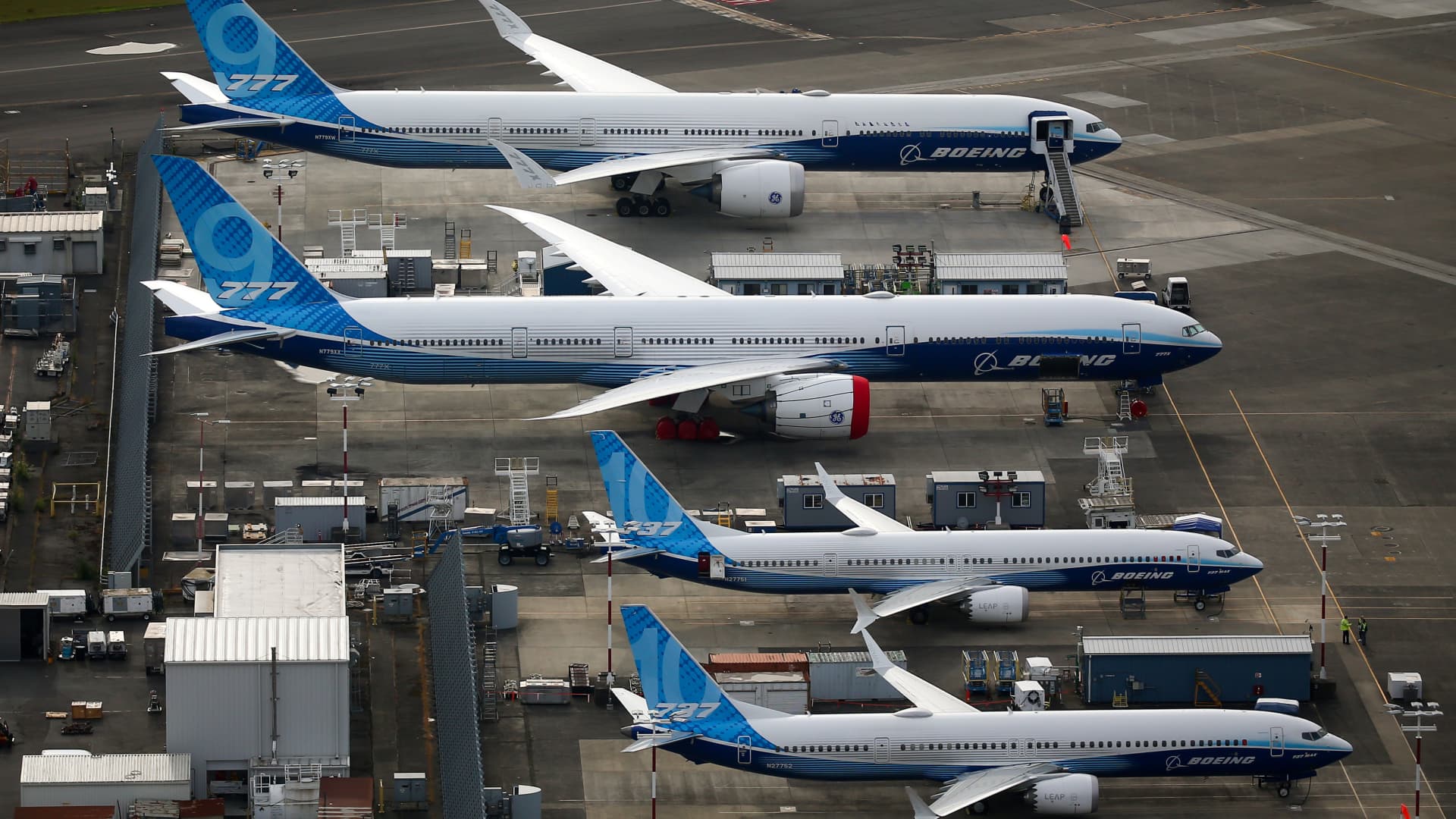Products You May Like
Boeing on Wednesday stuck by its forecast to return to free cash flow in this year as it prepares to resume deliveries of its 787 Dreamliner planes after manufacturing flaws paused deliveries for much of the past two years.
The company’s second quarter results fell short of analysts estimates. Weakness in its defense unit dragged down results, but was partly offset by strength in its commercial airplane unit. Aircraft deliveries rose to 121 in the second quarter from 79 a year ago, while commercial aircraft revenue rose 3% to more than $6.2 billion.
The company is fresh from winning high-profile orders at the Farnborough Air Show like those for 100 737 Max 10s from Delta Air Lines. Boeing and rival Airbus’ customers have been benefitting from a rebound in travel after demand for flights slumped during the pandemic.
Here’s how the company performed compared with analysts’ estimates complied by Refinitiv:
- Adjusted loss per share: 37 cents vs an expected loss 14 cents.
- Revenue: $16.68 billion vs. $17.57 billion expected.
Boeing swung to operating cash flow of $81 million in the quarter after burning $483 million in the same period last year. The Arlington, Virginia-based company posted net income of $160 million, down 72% from a year ago on revenue of $16.68 billion, which was down 2% from the second quarter of 2021.
CEO Dave Calhoun earlier this month said that the company is producing an average of 31 737 Max jetliners each month. He said the company won’t raise production too quickly because of supply chain and labor constraints. Rival Airbus has expressed similar concerns.
“Even with demand high, we won’t chase production rates or push our system too fast,” Calhoun said in a staff note on Wednesday. “With safety and quality at the forefront, we will prioritize stability and predictability.”
He also reiterated that Boeing is “in the final stages” of preparations to resume deliveries of its 787 Dreamliners, which have been paused for more than a year because of production flaws.
In January, Boeing said the issues would cost it $5.5 billion, including $2 billion in irregular manufacturing costs as it dialed back production to avoid a pileup of inventory. Boeing recorded $283 million of that in the second quarter.
A return of 787 deliveries is key for Boeing because customers pay the bulk of an aircraft’s price when they receive the planes.
The company’s defense unit revenue dropped 10% from a year ago and the company took a $147 million charge on its MQ-25 unmanned refueler because of higher costs.
Boeing executives will discuss results with analysts at 10:30 a.m. Wednesday, when they are likely to face questions about the 737 Max’s return to flying in key aircraft customer China, timing on the 777X and its cash flow forecast for this and next year.
Analysts are also likely to ask Boeing’s leaders to outline when they expect to win U.S. certification of the 737 Max 10, the largest in the Max family.
Boeing shares are down more than 22% so far this year. Shares were up more than 3% in premarket trading after releasing results.

